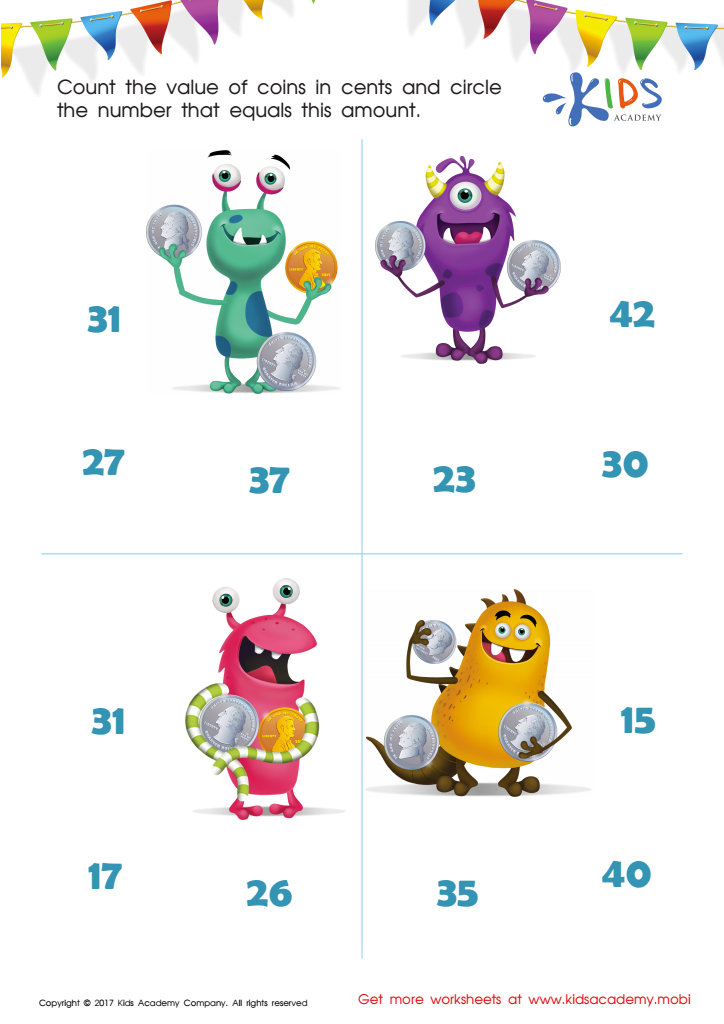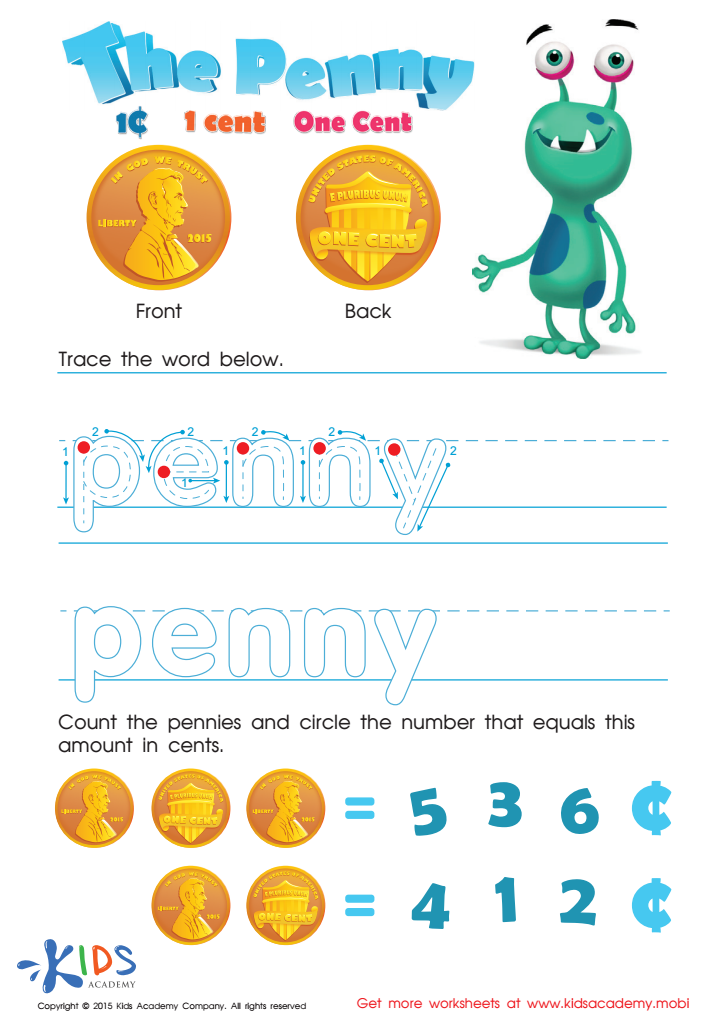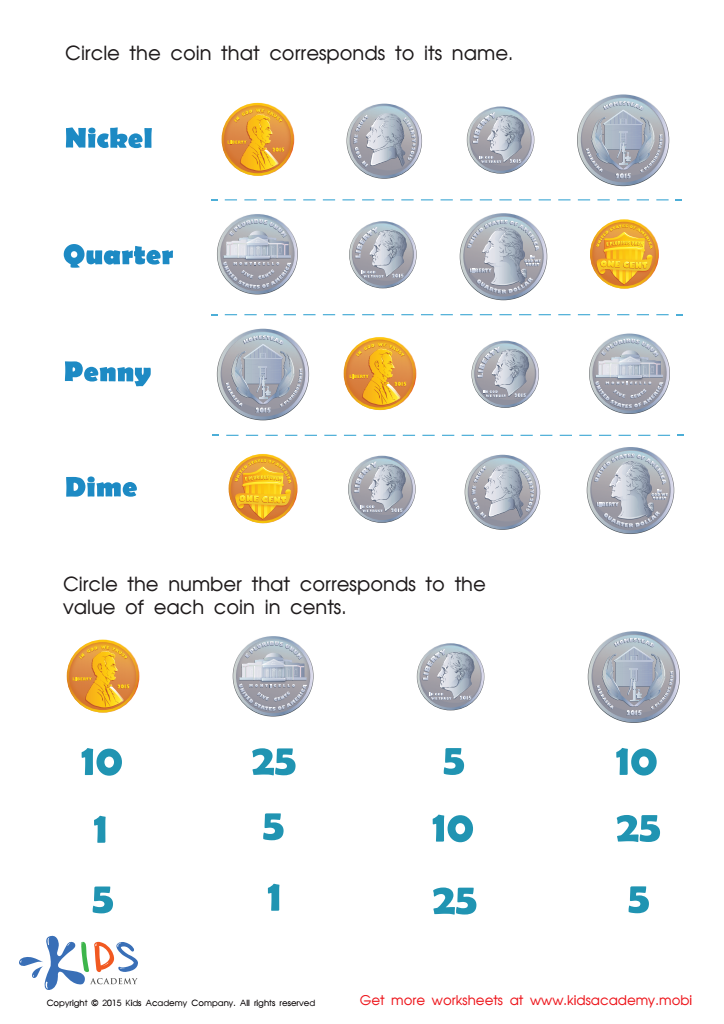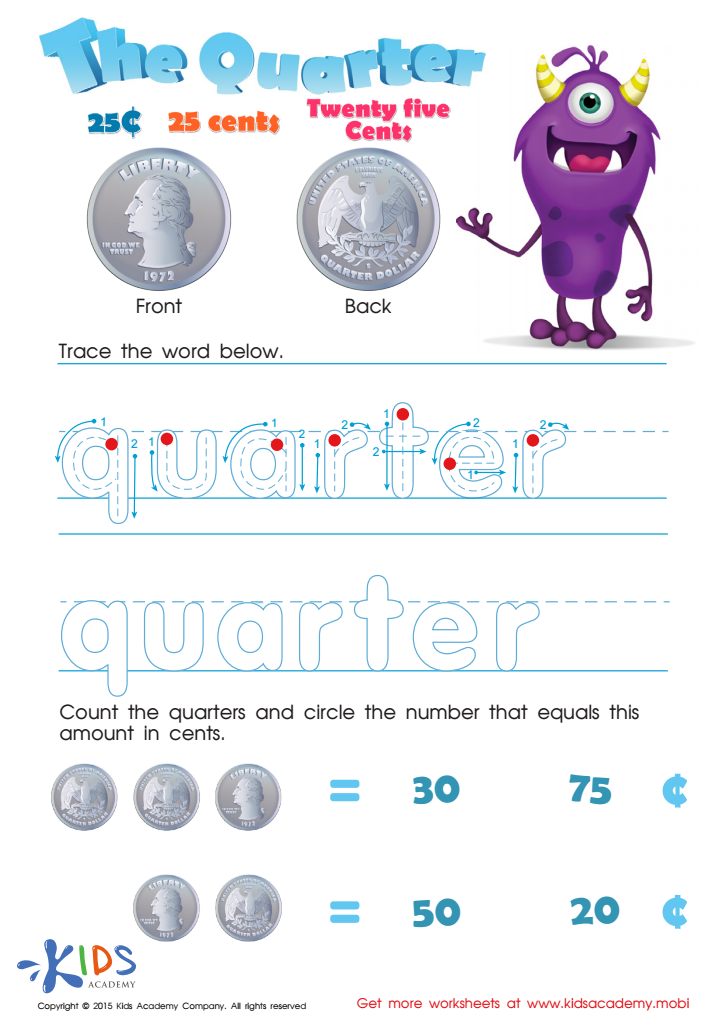Money recognition Extra Challenge Money Worksheets for Ages 3-7
4 filtered results
-
From - To
Introducing our Money Recognition Extra Challenge Money Worksheets for ages 3-7. Our engaging and interactive worksheets are designed to help young learners master the essentials of money recognition and counting. With vibrant illustrations and age-appropriate activities, these worksheets offer the perfect blend of fun and education, enhancing your child's numerical skills and real-world understanding. Ideal for parents and teachers alike, these worksheets motivate kids to recognize different coins and bills, improving their financial literacy from an early age. Give your child a head start with these carefully crafted, easy-to-use resources. Perfect for both classroom settings and at-home learning.


How Many Coins Money Worksheet


One Cent or the Penny Money Worksheet


Coin Names and Values Money Worksheet


Twenty Five Cents or the Quarter Money Worksheet
Parents and teachers should care about money recognition activities for ages 3-7 because early financial literacy sets a foundation for a lifetime of smart money management. Integrating "Extra Challenge Money" activities into playtime helps children understand the basics of money, such as identifying coins and bills, knowing their values, and practicing simple transactions. This early exposure demystifies money, making it less intimidating as they grow older.
Recognizing money isn’t just about economics; it enhances crucial developmental skills. It hones number recognition, counting, and basic arithmetic, bolstering early mathematical understanding. Handling money also promotes fine motor skills and hand-eye coordination. Through play-based challenges, children learn patience, problem-solving, and the importance of making choices, all of which are essential life skills.
Additionally, engaging in money recognition activities can be a bonding experience, providing parents and teachers with a fun way to interact with children and teach valuable lessons outside the traditional classroom environment. It reinforces real-world applicability, helping children understand the concept of money in terms of their day-to-day life. As they comprehend the value of money and savings, it instills a sense of responsibility and prudent financial habits from a young age, effectively preparing them for future economic competence.
 Assign to My Students
Assign to My Students





















